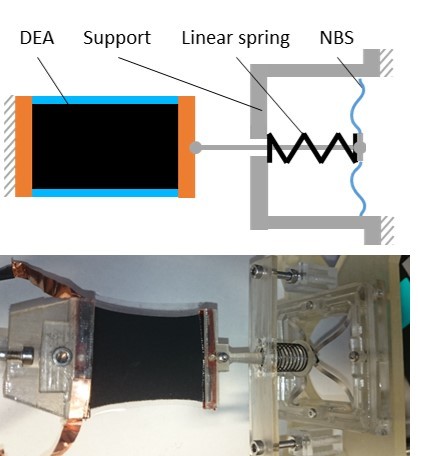ASIM 2 - Actuators and Sensors with Intelligent Material Systems 2

Module Description
This class provides the students with a basic understanding of smart material actuator and sensor systems. Four specific types of smart materials are discussed, namely Shape Memory alloys (SMA), Piezoelectrics (PZT), Magnetic Shape Memory Alloys (MSMA), and Dielectric Elastomers (DE). For each material, the physical principle is first discussed, and subsequently used to derive constitutive equations which describe the transducer dynamic response. Once the material models have been established, they will be used to for actuator/sensor systems simulation and design optimization. The theoretical lectures are accompained by tutorial sessions in which the developed model are implemented in Matlab/Simulink, and used to simulate the response of various types of smart material systems. At the end of the class, it is expected that the students have gained a basic understanding of the physical principle of the main types of smart material actuators and sensors, and are able to simulate the dynamic response of simple smart material system configurations.
The teaching material will be distributed by the lecturer during the semester.
Content
- Overview of smart material systems
- Free-energy based modeling framework
- Shape Memory Alloys (SMA): physical principle, material modeling, actuator/sensor system modeling
- Piezoelectrics (PZT): physical principle, material modeling, actuator/sensor system modeling
- Magnetic Shape Memory Alloys (MSMA): physical principle, material modeling, actuator/sensor system modeling
- Dielectric Elastomers (DE): physical principle, material modeling, actuator/sensor system modeling
Additional Info
Responsible Instructor: Jun.-Prof. Gianluca Rizzello
Assign to Departments: Systems Engineering
Semester: Summer Semester
Admission requirements: no formal requirements, although it is recommended to take ASIM 1 first
Type of Course: Lecture / Exercise/problem-solving class
Examination: Oral Examination and Project Presentation
Weekly Hours: 3 h/w, of which 2 h/w Lectures and 1 h/w Tutorials
Credit Points: 4
